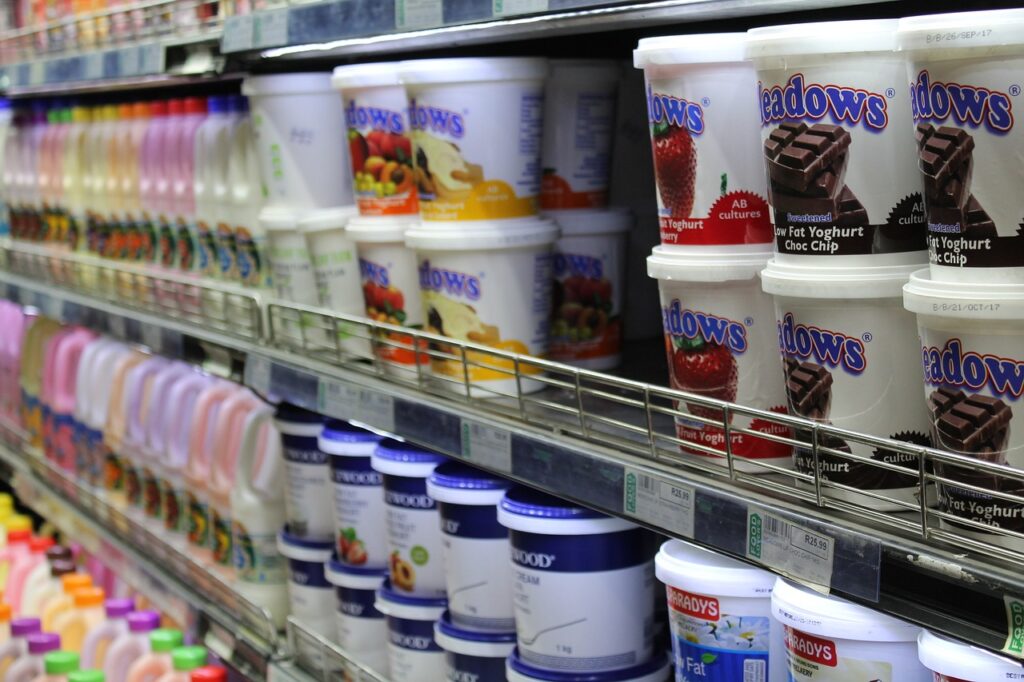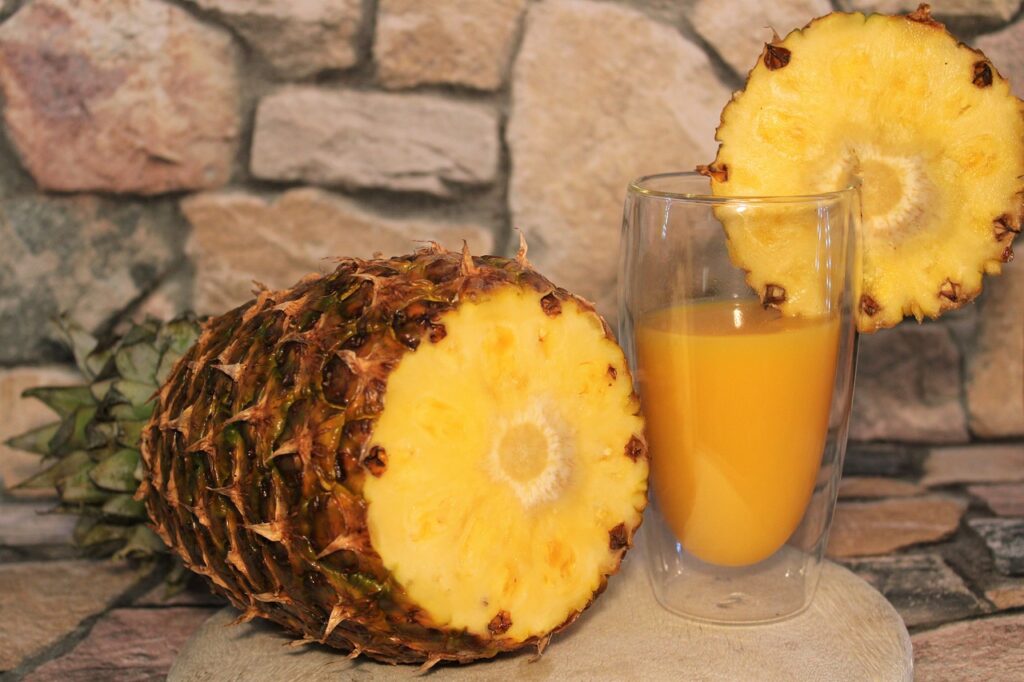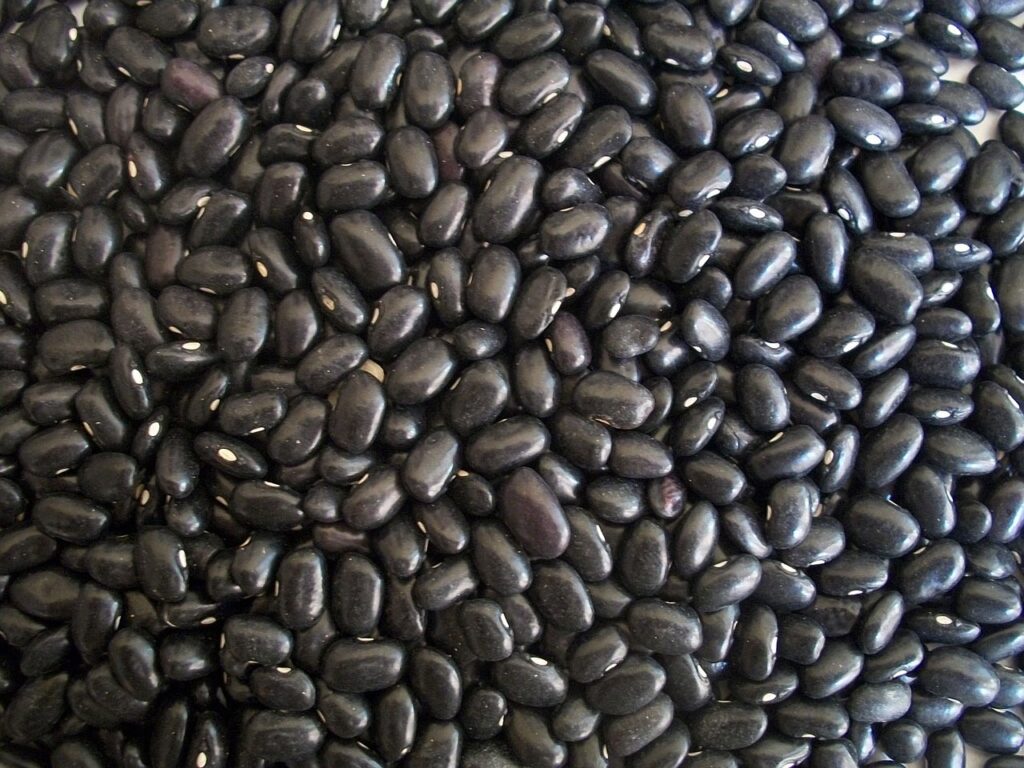Imagine sinking your teeth into a juicy, tender piece of protein that perfectly complements your keto diet. Now, picture doing so without any dairy products. Yes, it's possible!
In this discussion, we will explore the top keto protein sources that don't involve dairy, allowing you to maintain your dietary preferences while still meeting your nutritional needs.
From delectable seafood options to plant-based protein alternatives, we'll guide you through a variety of choices that will leave you satisfied and eager to discover new ways to enhance your dairy-free keto journey.
Seafood Options

When following a dairy-free keto diet, incorporating seafood options like salmon, trout, and tuna can provide you with a rich source of protein and essential nutrients. These fatty fish aren't only delicious but also high in protein, making them an ideal choice for a low-carb diet. In fact, a 3-ounce serving of salmon contains about 22 grams of protein.
Additionally, these seafood options are low in carbs, making them suitable for a dairy-free keto diet.
Seafood, in general, is an excellent protein source for those following a dairy-free keto diet. Not only are they low in carbs, but they also offer a wide range of nutrients. For example, shellfish like shrimp, crab, and lobster aren't only low in carbs but also high in protein. They're also rich in B vitamins and potassium, which are important for maintaining a healthy diet.
Furthermore, mussels and oysters are also great choices for dairy-free keto protein sources. They're low in carbs, high in protein, and packed with essential nutrients. These seafood options can provide you with the protein you need while adhering to a dairy-free keto diet.
Incorporating a variety of seafood options, such as cod, haddock, and halibut, into your dairy-free keto diet can ensure that you're getting ample protein and essential nutrients. By including these seafood options, you can enjoy a diverse and nutrient-rich diet while following a dairy-free keto lifestyle.
Poultry Choices
Poultry choices like chicken and turkey are versatile and nutritious options for a dairy-free keto diet. These lean meats are high in protein and low in fat, making them excellent sources of nutrition. Each three-ounce serving of poultry contains approximately 27 grams of protein, which is essential for muscle growth and repair. You can prepare poultry in various ways, such as roasting or simmering, to create delicious and dairy-free meals.
When incorporating poultry into your diet, it's important to remove the skin to keep the cholesterol content low. Both chicken and turkey offer similar health benefits, so you can choose either based on your preference. Poultry is an excellent option for obtaining protein on a dairy-free diet and can be enjoyed for any meal. For breakfast, you can add diced chicken or turkey to scrambled eggs or make a protein-rich omelet.
Including poultry in your meals helps you meet your protein needs without relying on dairy products. It provides a range of protein content, vitamins, minerals, and healthy fats. So, whether you're following a keto diet or simply looking for dairy-free protein sources, chicken and turkey are excellent choices that offer both taste and nutrition.
High-Protein Meats

High-protein meats, such as fish and meat, are essential components of a dairy-free keto diet due to their carb-free nature, nutrient density, and muscle-preserving properties. These meats aren't only high in protein but also provide essential nutrients that can support overall health.
Fish, such as salmon and mackerel, are excellent choices for a dairy-free keto diet. They're low in carbs and high in omega-3 fats, which are beneficial for heart health and brain function. These fatty fish can also improve insulin sensitivity, reducing the risk of metabolic disorders.
Meat and poultry are also great options for increasing protein intake on a dairy-free keto diet. They're carb-free and packed with essential nutrients like iron, zinc, and vitamin B12. These nutrients are important for energy production, immune function, and the maintenance of healthy red blood cells.
If you're looking for an alternative to traditional meat, consider incorporating vegan burgers made from plant-based protein sources like soy or pea protein. These alternatives can still provide a high protein content without the use of dairy products.
Incorporating high-protein meats into your dairy-free keto diet can help you meet your protein needs, preserve muscle mass, and reduce the risk of nutrient deficiencies. So, whether you prefer fish, meat, or plant-based alternatives, there are plenty of options to support your dairy-free keto lifestyle.
Eggs as a Protein Source
Eggs are a versatile and nutritious option for incorporating dairy-free protein into your keto diet. Here are some key reasons why eggs should be a part of your low carb meal plan:
- Lactose-free protein source: Unlike milk and other dairy products, eggs are free from lactose, making them suitable for those following a dairy-free keto diet.
- Protein-packed: Each egg contains about six grams of protein, making them an excellent source of this vital macronutrient. Protein is essential for muscle repair, satiety, and supporting overall health.
- Mealtime flexibility: Eggs can be enjoyed for any meal of the day, whether it's a hearty breakfast, a protein-rich lunch, or a satisfying dinner. Popular options include scrambled eggs, omelets, or boiled eggs.
- Versatile preparation: Eggs can be prepared in various ways to meet your protein needs. You can incorporate them into dishes like frittatas, egg muffins, or use them as a binder in recipes that call for almond flour or seeds.
Incorporating eggs into your keto diet provides a convenient and nutrient-dense way to meet your protein requirements without relying on dairy products. Enjoy the versatility and nutritional benefits that eggs offer while staying on track with your low carb lifestyle.
Plant-Based Protein Alternatives

Looking to incorporate plant-based protein alternatives into your dairy-free keto diet? You're in luck!
Plant-based proteins offer a range of nutritional benefits, including being rich in fiber, antioxidants, and healthy fats.
With options like soy, nuts, seeds, and nutritional yeast, you can enjoy a variety of plant-based protein sources while staying on track with your keto goals.
Nutritional Benefits of Plant-Based Proteins
Plant-based proteins, such as soy, nuts, and seeds, offer a wide range of essential nutrients, making them a valuable alternative for those following a keto diet without dairy products. Here are some nutritional benefits of plant-based proteins:
- Healthy fats: Plant-based proteins are often rich in healthy fats like omega-3 fatty acids, which are beneficial for heart health and inflammation reduction.
- Fiber: Plant-based proteins also provide a good amount of dietary fiber, which aids in digestion, promotes satiety, and helps maintain stable blood sugar levels.
- Antioxidants: Many plant-based protein sources are packed with antioxidants, which protect against cellular damage and support overall health.
Incorporating plant-based proteins into a low-carb, dairy-free keto diet can provide essential nutrients, support weight loss, and offer anti-inflammatory properties. Additionally, plant-based proteins are more sustainable and environmentally-friendly compared to animal-based protein sources.
Variety of Plant-Based Protein Sources
Incorporating a variety of plant-based protein sources into your dairy-free keto diet can provide essential nutrients and support your overall health goals. When it comes to protein, there are several plant-based sources that can be included in your diet.
Soy, nuts, and seeds are complete protein sources that are suitable for a plant-based keto diet. They not only provide protein but also essential amino acids and nutrients. Tofu, tempeh, and edamame are excellent options for those following a keto diet without dairy products.
Additionally, incorporating seeds and nuts like pumpkin seeds, hemp seeds, and almonds can provide not only protein but also healthy fats and fiber. Lastly, including fish like trout and tuna can contribute to protein intake along with essential nutrients.
Incorporating Plant-Based Proteins Into a Keto Diet
To continue on your dairy-free keto journey, let's explore the world of plant-based protein alternatives that can be incorporated into your diet.
Incorporating plant-based proteins like soy, nuts, and seeds into a keto diet provides essential nutrients while being low in carbs. Here are three sub-lists of plant-based protein sources for a keto diet:
- Soy products: Consider incorporating tempeh, tofu, and soy milk into your meals. These options are rich in protein and low in carbs, making them ideal for a keto diet.
- Nuts: Choose a variety of nuts such as almonds, peanuts, and cashews. These are excellent sources of plant-based protein that can be enjoyed as a snack or added to salads and dishes.
- Other options: While some plant-based proteins like rice, beans, and lentils are high in carbs, you can still enjoy a balanced intake by considering protein powder supplementation. Additionally, opt for dairy-free protein sources like seeds, fish, poultry, and eggs, which offer a range of protein content, vitamins, minerals, and healthy fats.
Incorporating these plant-based protein sources into your keto diet will help you meet your protein needs while avoiding dairy products.
Nuts and Seeds for Keto Protein

For a keto-friendly diet, nuts and seeds such as almonds, walnuts, and chia seeds are excellent sources of protein. Incorporating these low-carb options into your diet can provide you with the necessary protein while keeping your carb intake in check. Nuts and seeds not only offer protein, but they also contain healthy fats, fiber, and essential nutrients that are beneficial for overall health.
Regular consumption of nuts and seeds has been linked to a reduced risk of heart disease, certain cancers, and depression. Almonds, macadamia nuts, pecans, walnuts, chia seeds, and flaxseeds are specifically low in net carbs and high in fiber, making them ideal choices for a keto diet.
However, it's important to note that different types of nuts and seeds have varying carb content, so it's essential to choose ones that align with your macronutrient goals.
Non-Dairy Protein-Rich Vegetables
Green leafy vegetables like spinach, kale, and collard greens are excellent non-dairy protein-rich options for a keto diet. These vegetables not only provide essential protein but also offer a wide range of vital nutrients.
Here are three sub-lists to help you discover the protein-rich potential of non-dairy vegetables:
- Cruciferous vegetables: Broccoli, cauliflower, and Brussels sprouts are low in carbs and high in fiber, making them an ideal choice for those avoiding dairy. These vegetables not only contribute to your protein intake but also offer additional health benefits such as antioxidants and vitamins.
- Zucchini and summer squash: These versatile and low-carb vegetables can be used as a pasta substitute, providing a non-dairy protein source for keto followers. They aren't only rich in protein but also contain essential nutrients like vitamin C and potassium.
- Peppers and avocado: While peppers are technically fruits, they're low in carbs and suitable for the keto diet. They can be an excellent addition to your non-dairy protein sources. Avocado, on the other hand, is a high-fat vegetable that's low in carbs and abundant in essential nutrients. Incorporating avocado into your keto diet can provide you with both protein and healthy fats.
Legumes for Dairy-Free Protein

Diversify your dairy-free keto protein sources by incorporating legumes such as lentils, chickpeas, and black beans into your meal plan. Legumes are excellent sources of protein and fiber, making them a nutritious addition to your dairy-free keto diet. While some legumes are higher in carbs, you can still include moderate portions of certain legumes in your meal plan.
One cup of cooked lentils provides about 18 grams of protein and 15 grams of fiber, making it a filling and nutrient-dense choice. Chickpeas, another legume, offer approximately 15 grams of protein and 13 grams of fiber per cup. Black beans are also a great option, providing around 15 grams of protein and 15 grams of fiber per cup.
You can incorporate legumes into your dairy-free keto diet in various ways. They can be added to soups, salads, or used as a side dish. Additionally, you can use legume-based flours to make keto-friendly breads or baked goods.
However, it's important to monitor your portion sizes and choose legumes with lower carb content to stay in ketosis. Remember that legumes do contain some carbohydrates, so it's essential to include them mindfully in your meal plan.
Soy-Based Protein Options
Looking for dairy-free protein options on a keto diet? Soy-based protein sources like tempeh, firm tofu, and edamame can provide you with all the essential amino acids you need. These versatile and nutritious options are suitable for a plant-based keto diet and can be used in a variety of dishes.
Incorporating soy-based protein into your keto meal plan is a great way to support a dairy-free approach while still getting the essential nutrients your body needs.
Nutritional Benefits of Soy
Soy-based protein options, such as tempeh and tofu, offer a multitude of nutritional benefits for individuals following a dairy-free keto diet. Here are some reasons why incorporating soy into your diet can be advantageous:
- Complete Protein Source: Soy is a complete protein source, containing all nine essential amino acids necessary for the body's function and health.
- Variety of Choices: Soy-based protein options, including tempeh, firm tofu, silken tofu, unsweetened soy milk, and edamame, provide a variety of choices for incorporating soy into a dairy-free diet.
- Suitable for Keto: Soy is high in protein and low in net carbs, making it a suitable option for those following a keto diet.
Cooking With Soy Protein
To add a meaty texture and enhance the versatility of your meals, consider incorporating soy protein into your cooking. Soy-based options such as tempeh, firm tofu, silken tofu, unsweetened soy milk, and edamame are low in carbs and rich in protein, making them suitable for a keto diet.
These soy protein options can be used in various dishes, from stir-fries to smoothies, to provide a dairy-free alternative that's high in nutrients. Soy protein is a complete protein source, containing all the essential amino acids your body needs.
Alternative Protein Sources for a Dairy-Free Diet

If you're following a dairy-free diet, there are plenty of alternative protein sources that can meet your needs. Here are some options for you:
- Seafood: Seafood such as salmon, fish, and shellfish are low in carbs and high in protein. They're also rich in B vitamins and potassium, making them suitable protein sources for a dairy-free, keto diet.
- Fatty Fish: Fatty fish like salmon, sardines, and mackerel aren't only low in carbs but also high in omega-3 fats. These healthy fats can improve insulin sensitivity and support brain health, making them a great alternative protein option for those avoiding dairy.
- Meat and Poultry: Meat and poultry are carb-free and provide essential nutrients like B vitamins and protein. They can be excellent alternatives for a dairy-free, keto diet.
- Eggs: Eggs are a versatile and healthy protein source. They're low in carbs and can increase feelings of fullness, making them a great option for a dairy-free, keto diet.
Most animal proteins, including seafood, fatty fish, meat, poultry, and eggs, are suitable for the keto diet and can help preserve muscle mass. Incorporating these alternative protein sources into your dairy-free diet will ensure you meet your protein needs while following a low-carb, keto lifestyle.
Conclusion
In conclusion, there are numerous dairy-free options available to those following a keto diet.
One interesting statistic to note is that eggs, a versatile protein source, contain all nine essential amino acids and are an excellent option for muscle recovery and growth.
Whether you choose seafood, poultry, high-protein meats, or plant-based alternatives, there are plenty of nutrient-dense options to suit different tastes and preferences.
So go ahead and enjoy your dairy-free keto journey while meeting your protein needs!







